
- This event has passed.
Reinforcing seed sovereignty in the community place: Malawi
December 24, 2022

As we may acknowledge that climate change is affecting life on the planet in a variety of ways either directly or indirectly. Since the 1980s, when climate change interventions started to be introduced in Malawi, the biodiversity landscape has changed. Industrial agriculture was introduced in the country, with the government and other outside parties providing hybrid seeds in some cases GMO seeds were introduced, synthetic fertilizers and chemical pesticides to the farmers. The public was taught that these were climate resilient technologies for bypassing the ills of climate change. Forty years later, we come to learn that the Hybrid/GMO seeds are even the most hit during climate disaster than the indigenous. We found out that the exotic breeds require more chemicals to grow, the chemicals that later pollute the air, soil, and water. It was later found out that the Hybrid/GMO seed industry, cannot be controlled by the local farmer, therefore, seed sovereignty was lost to one or two rich commercial companies. Today, we realize that the market was full of the same crops because that is the seeds that are made available to the farmers; same types of vegetables, same types of fruits in the markets, and this imbalance has potential effects on human health and nutrition. The biggest worry is that some local seeds are going extinct. For example, the local pigeon peas are almost nowhere to be seen anywhere in the country. To protect our local seeds, in 2019, a community seed bank was introduced. In February 2022, members invited happy Mwebe, representative of Malawi to join the team. In brief, member farmers multiply the local seeds and store in one place called seed bank. In the growing season like now, they share the seeds for multiplication. The excess is sold for an income.
It should also be stressed that the intention of the project was not to fall down the hybrid seed/GMO industry, rather to protect intinction of local seeds that are even valuable and irreplaceable.
On 24 December, farmers were sharing the local seeds, specifically local sorghum, for multiplication.
Place :Wataka Primary School, Machinga district, Malawi
Stakeholders involved: Farmer Organizations
Partners involved: C.A.R.D.
Direct impacted population: 56 total; 40 females, 16 male
Indirect impacted population: 400
Objectives attained:
• Reinforced seed sovereignty in the community
• Promoted community-based solutions in fighting climate change
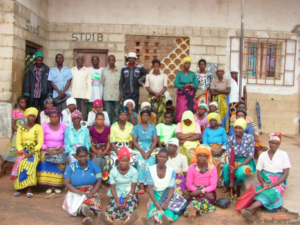
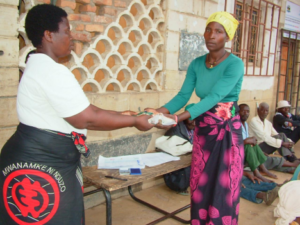
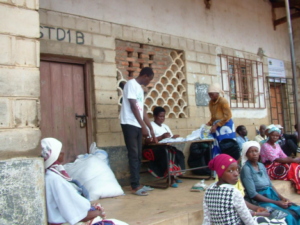
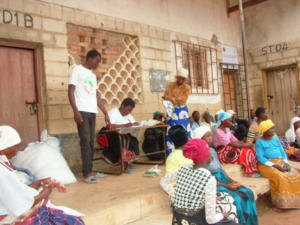
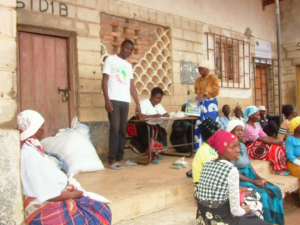
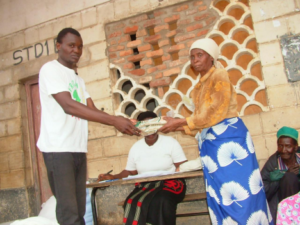
Conclusion
One of the worries of climate change is extinction of species. A million of species on the planet are on the verge of disappearing altogether. Seeds are not exempted. It is, therefore, important to consider seed progeny as that is the central unit of human and animal nutrition and health.





